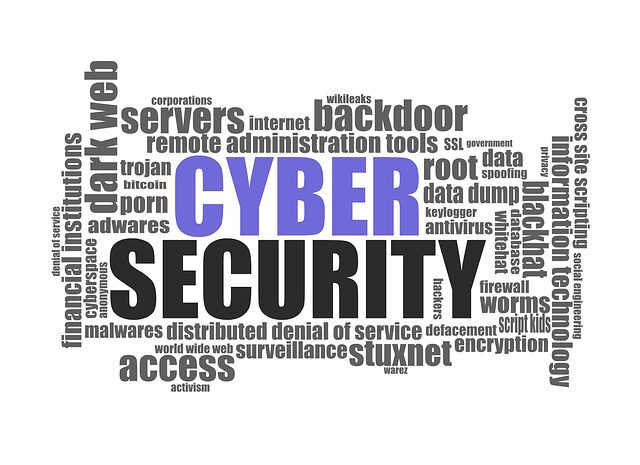Get SSCP Certified and Boost Your Cybersecurity Career
Want to improve your IT security skills? The Systems Security Certified Practitioner (SSCP) certification can help. This well-known credential can make you stand out in cybersecurity and lead to exciting job opportunities.
Key Points: SSCP Certification
- Shows advanced IT security skills for managing security systems
- Covers 7 main cybersecurity areas, like access controls and risk management
- Needs 1 year of work experience or a related degree
- Can lead to higher pay and better cybersecurity jobs
- Recognized by the U.S. Department of Defense, adding credibility

What is the SSCP Certification?
The SSCP is for IT professionals who handle daily security operations in an organization. It’s great for people starting in cybersecurity or moving into security roles. This certification shows you can manage IT security using best practices.
SSCP certification is valuable because it’s not tied to any specific technology. This means certified professionals understand security principles that work across different systems.
What’s on the SSCP Exam?
The SSCP exam tests your knowledge in seven important cybersecurity areas:
- Security Concepts and Practices: Basic security principles, risk management, and security policies.
- Access Controls: Different access control models, authentication methods, and identity management.
- Risk Identification, Monitoring, and Analysis: Finding security risks, checking for vulnerabilities, and ongoing monitoring.
- Incident Response and Recovery: How to prepare for, respond to, and recover from security problems.
- Cryptography: Encryption methods, key management, and digital signatures.
- Network and Communications Security: Network protocols, secure network design, and common network attacks.
- Systems and Application Security: Securing operating systems, applications, and databases.
These topics cover what you need to know to keep an organization’s IT systems safe. The exam tests both your knowledge and practical skills to make sure you can handle real security challenges.
Who Should Get SSCP Certified?
SSCP is great for IT professionals who want to work in security or are already in entry-level security jobs. It’s perfect for:
- Network Security Engineers: People who design and set up secure networks.
- Systems Administrators: IT experts who manage computer systems and servers.
- Security Analysts: People who watch for and investigate security events.
- IT Auditors: Professionals who check if security policies are being followed.
- Risk Management Professionals: Experts who find and reduce security risks.
- Database Administrators: People who keep database systems secure.
- Cloud Security Specialists: Professionals who focus on securing cloud systems.
If you’re interested in these jobs or similar ones in cybersecurity, getting SSCP certified can give you an advantage and show you’re serious about your career.
SSCP Certification Requirements
To get SSCP certified, you need:
- At least one year of paid work experience in one or more of the seven SSCP areas
- OR a bachelor’s or master’s degree in a cybersecurity-related field
- To pass the SSCP exam
- To agree to the (ISC)² Code of Ethics
The exam has 125 multiple-choice questions, and you have 3 hours to finish. You need a score of 700 out of 1000 to pass. The exam changes difficulty based on how you’re doing, to make sure it tests all your knowledge.
How to Prepare for the SSCP Exam
Getting ready for the SSCP exam takes time and effort. Here are some good ways to prepare:
- Take an official (ISC)² training course: These courses cover exactly what’s on the exam.
- Study the official SSCP textbook: This book covers all exam topics in detail.
- Use practice exams: These help you get used to the exam format and find areas you need to study more.
- Join study groups or online forums: Talking about topics with others can help you understand them better.
- Create a study schedule: Regular study sessions help you remember information better.
- Use online resources: Webinars, videos, and cybersecurity blogs can help you learn more.
Remember, hands-on experience is important. Try to use what you’re learning in your daily work if you can. This will help you remember better and prepare you for real situations you might face in your job.
Career Benefits of SSCP Certification
Getting SSCP certified can open up new opportunities in your career:
Average Salaries for SSCP-Related Job Roles
These salaries show that SSCP certification can lead to well-paying jobs in cybersecurity. Other benefits include:
- More respect in the cybersecurity community
- Better job security in a growing field
- Access to a global network of cybersecurity professionals
- Chances to move up in your career and specialize
SSCP vs. Other Certifications
Here’s how SSCP compares to other cybersecurity certifications:
- SSCP vs. CompTIA Security+: SSCP is more advanced and focuses more on practical skills. It’s often taken after gaining some experience.
- SSCP vs. CISSP: SSCP is more technical and for practitioners, while CISSP is more for managers. Many people get SSCP before CISSP.
- SSCP vs. CEH (Certified Ethical Hacker): CEH focuses on ethical hacking, while SSCP covers broader security operations.
SSCP can be a great start before moving on to more advanced certifications like CISSP as you grow in your career. It gives you a solid foundation in security that you can build on later.
Real-World Use of SSCP Skills
SSCP-certified professionals use their skills to:
- Set up and manage access control systems: Implementing secure login and authorization systems.
- Monitor networks for security threats: Using tools to spot and analyze potential security breaches.
- Respond to and recover from security incidents: Creating and following plans to handle cyber attacks.
- Implement encryption and other security measures: Protecting sensitive data with proper security techniques.
- Conduct risk assessments: Finding weak spots and suggesting appropriate security measures.
- Develop and enforce security policies: Creating guidelines that follow industry standards and laws.
- Educate staff on security best practices: Teaching others in the organization how to stay safe online.
These skills are crucial in today’s digital world where cyber threats are always changing. SSCP-certified professionals play a key role in protecting organizations from data breaches, financial losses, and damage to their reputation caused by cyber attacks.
Conclusion: Is SSCP Right for You?
SSCP certification is valuable for IT professionals who want to specialize in security. It proves your skills, can lead to better jobs, and gives you a strong start in cybersecurity. With the growing need for cybersecurity experts and the increasing complexity of cyber threats, SSCP-certified individuals are well-prepared to help their organizations and advance their careers.
If you’re interested in IT security and want to improve your career, SSCP could be a great next step. It offers a good mix of technical knowledge and practical skills, making it an excellent choice for those who want to establish themselves in cybersecurity.
Ready to start? Check out our ISC2 certification courses to begin your journey towards becoming SSCP certified. Your future in cybersecurity is waiting! With hard work, study, and practical experience, you can join other respected cybersecurity professionals and help protect our digital world.

